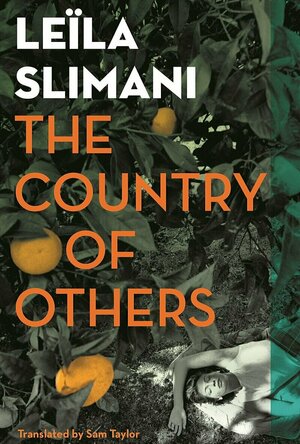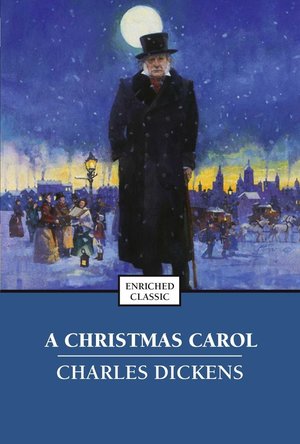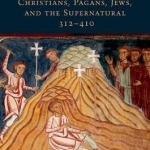
A Century of Miracles: Christians, Pagans, Jews, and the Supernatural, 312-410
Book
The fourth century of our common era began and ended with a miracle. Traditionally, in the year 312,...
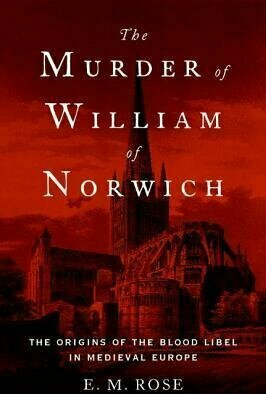
The Murder of William of Norwich: The Origins of the Blood Libel in Medieval Europe
Book
In 1144, the mutilated body of William of Norwich, a young apprentice leatherworker, was found...
ClareR (6067 KP) rated The Country of Others in Books
Sep 19, 2021
Mathilde falls in love with, and marries, Amine Belhaj, a Moroccan stationed in Alsace. After the war, she sails to Morocco to live with Amine on his family farm. Life is so different to that in France, and Mathilde struggles to adapt. The French there shun her because of her husband, and Moroccans are suspicious of her because she’s French.
It’s a time of great upheaval in the 1950’s, as the Moroccans fight for independence from France, and life becomes increasingly dangerous for the Belhaj’s.
It’s a challenging life for Mathilde: she has to work hard, and Amine has a very fixed idea of a wife’s role. When she doesn’t stick to his rules, voices her opinions or disagrees, Amine beats her - he’s a violent man, scarred by the things that he saw and experienced in the war.
Mathilde does manage to insist that their daughter, Aicha, goes to a good French speaking school, and Aicha proves to be a good, diligent student - but the other girls at school are poisoned by their parents views: they’re very unkind and bully her.
There is a real feel for the heat and dust of Morocco. The contrasting cultures and religions of Christianity and Islam are shown, as well as the roles of women and how they are restricted in the light of their religions and it’s traditions. It looks at what it is to be a foreigner in a strange land; belonging, both in a country and a family; and the Moroccan struggle for independence from France.
This is going to be a trilogy, and I’m already fully invested in it - I can’t wait for the next book. Sam Taylor’s translation is perfect, and I hope that they’ll be translating the subsequent books as well.
Many thanks to The Pigeonhole for helping me (yet again!) with my NetGalley reading, and to Faber for my ebook copy through NetGalley.

The Cross of Ciarán (The Cross of Ciarán #1)
Book
When a fifth century pagan priest is unearthed in Ireland fifteen hundred years after being...
Timeslip Historical Irish Celtic Romance
Cody Cook (8 KP) rated A Black Theology of Liberation in Books
Jun 29, 2018
One major issue for Cone is one of authority. The experience of one group of people (the oppressed) becomes equivalent with universal truth, and not simply an important concern in Christian theology. In other words, Cone makes his own experience the judge of who God is and what God is for. While “white” (a term used by Cone not so much to reflect skin color but an oppressor mentality) Christianity commits this grave error without realizing it, Cone does so with full knowledge. So, for instance, while a conservative “white” theologian would say that his own views and actions *should* be directed by the scripture (whether or not he does in fact direct them by this standard), Cone makes the judgement of the oppressed black community the ultimate truth for them– and if mass violence against whites is decided by the group as the best means to effect their liberation, so be it. Cone explicitly distances himself from the approach of King, identifying more with the violence-prone philosophy of the Nation of Islam as propounded by Malcolm X. If someone criticizes his approach, he seems to assume that they’re doing so as a “white” oppressor and should be ignored– an oppressor has no moral right to question the rightness or wrongness of the actions of the people he is oppressing. This of course ignores the criticisms of violence, even from the oppressed, of black Christians like Martin Luther King Jr., Desmond Tutu, etc. Cone is also unfortunately either unfamiliar with or unconvinced by pacifist Christian claims to be committed to peaceful action, since he equates non-violence with inaction and acquiescence. While he is absolutely correct in seeing liberation as an important theme in the Christian faith, he, like “white” religionists, allows his own experience and emotions to determine what is right and wrong to the point of supporting evil in the interest of what he feels is best for his community. However, what can’t be said of Cone’s position on violence is that it is radical, because it is emphatically not. The political heroes of most white Americans are men who used violence to gain political autonomy. Thus, it is not radical for black men and women to look up to figures like Malcolm X and James Cone who advocate doing the same thing if it seems necessary for freedom and self-determination; it is merely status quo. The problem is that Jesus calls all men and women, regardless of color, to rise above the status quo and the myth of redemptive violence.
Seizing on that point, one major problem with Cone’s view of violent revolution is that when oppressed people rise up through violence, they become the oppressor– co-opting the tools of oppression and dehumanization. “Blacks” become “white” through the use of violence. Cone seems unaware of (doubtful) or unaffected by the history of the Bolshevik, Cuban, or French revolutions, wherein the oppressed quickly became the oppressors and became twofold more a child of hell than their oppressors. His view also reshapes Nat Turner, the slave who claimed to have been directed by God to murder white women and children, into an unqualified hero. Cone’s system re-establishes and re-affirms oppression– it does not end it.
For Cone, God is black and the devil is white, because God supports the oppressed and the devil supports the oppressor. But in so closely identifying God with blackness, the actions of those in the black community are now above being questioned, just like the actions of white enslavers were, according to them, above being questioned because they aligned themselves with God and those whom they oppressed with the devil.
What Cone is really trying to get at is that since Jesus supports the cause of the oppressed, the oppressor must so distance himself from his oppressor identity that he becomes indistinguishable from the oppressed– willing to suffer along with them– if he is to be Christ-like. In other words, the “white” must become “black.” Cone says that God can’t be colorless where people suffer for their color. So, where blacks suffer God is black. Taking this logic, which is indeed rooted in Scripture, where the poor suffer, God is poor. Where babies are killed in the womb, God is an aborted baby. Where gay people are bullied, God is gay. It is our obligation to identify with the downtrodden, because that’s what Jesus did. Paul, quoting a hymn of the church about Jesus, puts it this way:
“In your relationships with one another, have the same mindset as Christ Jesus:
‘Who, being in very nature God,
did not consider equality with God something to be used to his own advantage;
rather, he made himself nothing
by taking the very nature of a servant,
being made in human likeness.
And being found in appearance as a man,
he humbled himself
by becoming obedient to death—
even death on a cross!'”
–Philippians 2:5-8
Jesus not only gives up his power to express love to the powerless by identifying with them, He also takes on their sin and suffers with and for them. This is the essence of the gospel, and it often gets lost when we translate it into our daily lives. For Cone, this important truth gets lost in the banner of black militantism and the cycle of violence. For so many American Christians, it gets lost when they reduce the political nature of Christianity to scolding those whose private expression of morality doesn’t line up with theirs. We refuse to identify with sinners (which is a category we all fit into) in love.
Heather Cranmer (2721 KP) rated Prodigal in Books
Jun 7, 2018
Wow...just wow! The feels in this book were just wow! Prodigal by Rektok Ross has definitely become my favorite book this year. In fact, it may've become my favorite book ever, seriously. I had my reservations about this book being as it is Christian fiction. Although I am Christian, I don't like books that are too preachy because it's like they are preachy to the choir. However, this book was not preachy but helped get the message across. It is just amazing!
The title didn't really give me much to go on. In fact, if I'm being honest, when I first heard of the book, the title didn't catch my attention at all.
The cover is definitely original; I'll give it that that. However, like the title it's a bit plain. However, the sheep can be a symbolism in Christianity. Prodigal also touches on the story of the Prodigal Son which is another reason I believe the sheep is on the cover.
The world building was fantastically done! Ross does a great job of portraying a non-believing teen. Ross also portrays the high school relationship drama very well. I actually felt like I was back in high school while reading this book.
The pacing was set superbly! This was one of those books that I didn't want to put down because I had to know what would happen next. Unfortunately, life got in the way sometimes, and I did have to put the book down, but I would pick it up as soon as I got a chance.
The plot was so sweet! Lexy moves to a new state which means a new school her senior year, meets the uber hot quarterback, and they fall in love. However, there's some problems which means their relationship does suffer. Along the way, Lexy finds God. As I've said before, this book isn't over the top preachy. It's not subtle when it comes to God, but it's not in your face either. Oh, there weren't any plot twists that I noticed, but that didn't affect the book.
The characters all felt very realistic to me. I started out not liking Lexy because I didn't like the way she treated and spoke to her mother. However, Lexy began to grow on me, and I soon felt what Lexy felt when it came to what all was going on around her. I also liked Ash. I like how Ross portrayed him as a typical Christian teen and not one who was overly religious. Ash also had his demons so to speak. I even liked Blythe even though she was the resident mean girl. There's no excuse as to why Blythe behaved the way she did, but towards the ending of the book, it's easier to understand why she's the way she is.
I enjoyed the dialogue and the writing in this book. Again, I want to stress that this book doesn't just focus on God and Christianity. If anything, that's more of a minor subplot. There's no real violence in this book and only one swear word (the word ass).
If there's only one book you'll ever pick up, I'd highly suggest Prodigal by Rektok Ross. This book was so much more than I was expecting and left me with so many feels! If I had enough money, I'd buy this book for friends, family, strangers, readers of my blog, and well, everyone really! This book has it all - a great cast of characters, a world that pulls the reader right in, a fantastic story line, and a great message!
I'd recommend this book to those aged 14+ who are believers of God, non-believers, those struggling with their faith, those that are new believers, and just everyone in general.
(I received a free paperback copy from the author in exchange for a fair and honest review).
Haley Mathiot (9 KP) rated A Christmas Carol in Books
Apr 27, 2018
The Special Edition of A Christmas Carol is a small book, perfect to fit in a small handbag (or a stocking!) with a beautiful cover. The book itself is printed with Dickens’ story in the main section of the pages, and the notes, subtext, and annotations printed in the outer margins. After every “Chapter” (called a Stave in the text) there is a discussion section, perfect for any age group, either young children or mature Christians. The discussion features Bible verses and questions, and relates events, topics, and themes from A Christmas Carol to our everyday Christian walk with God. Extra verses and topics follow the end of every discussion section for those older individuals who wish to go further into studying the themes targeted in the book: Selfishness, Regret, Repentance, Salvation, and Rebirth. At the end of the book is a list of resources for further study.
The story of A Christmas Carol remains, to this day, a classic in literature because it is a wonderful story of sin and greed turned around to Christianity and charity through allegory and parable. It has proved itself a wonderful story to every reader, and will continue to do so forever. Hopefully, this will be the edition that becomes the standard.
Recommendation: All ages. Wonderful for family discussions or group Bible studies. Perfect Christmas gift or stocking stuffer!
**Thank you to FSB Associates for providing my review copy!**
MaryAnn (14 KP) rated Argosy Junction in Books
Mar 5, 2019
My Thoughts: Lane Argosy isn't like every other girl you would meet,; and that's just what Matt Rushby found out when he stuck in a field of "ferocious" sheep. This was an interesting book to read. Not only was it a romance novel, set in Montana, but it's also a story about how some churches can become toxic to its members. It deals with how pride can come into our lives and not only hurt us but other people as well. It's a good reminder to always go to the Bible when in doubt about teachings in the church.
It's also a reminder that God is always there waiting for us no matter how far we stray from Him, that He is a forgiving father. It's also about forgiving others. Prayer is a great tool, and we should always turn to God in prayer over everything in our lives, big or small.
The characters are enjoyable and entertaining in this novel, the author really brings them to life for the reader and the added humor is something I enjoyed. This is a novel that all ages can and will enjoy!
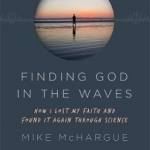
Finding God in the Waves: How I Lost My Faith and Found it Again Through Science
Book
'Through the lens of neuroscience, McHargue makes his case for valuing religion not for its factual...
Kabbalah: A Very Short Introduction
Book
In Kabbalah: A Very Short Introduction, Joseph Dan, one of the world's leading authorities on Jewish...
